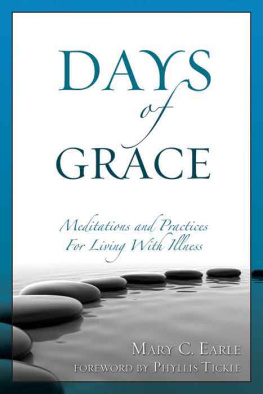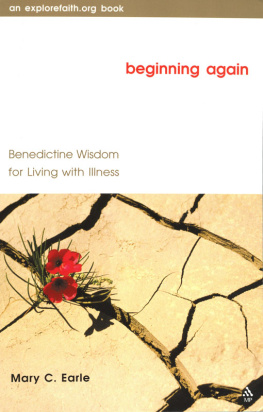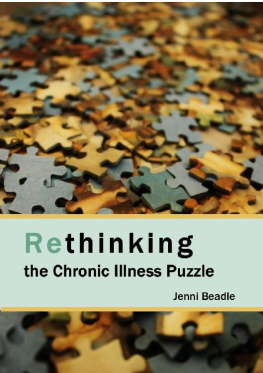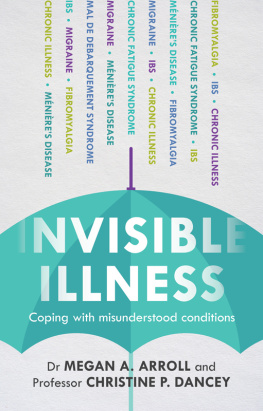Brian Orend - Seizure the Day: Living a Happy Life with Illness
Here you can read online Brian Orend - Seizure the Day: Living a Happy Life with Illness full text of the book (entire story) in english for free. Download pdf and epub, get meaning, cover and reviews about this ebook. year: 2019, publisher: Freehand Books, genre: Religion. Description of the work, (preface) as well as reviews are available. Best literature library LitArk.com created for fans of good reading and offers a wide selection of genres:
Romance novel
Science fiction
Adventure
Detective
Science
History
Home and family
Prose
Art
Politics
Computer
Non-fiction
Religion
Business
Children
Humor
Choose a favorite category and find really read worthwhile books. Enjoy immersion in the world of imagination, feel the emotions of the characters or learn something new for yourself, make an fascinating discovery.

- Book:Seizure the Day: Living a Happy Life with Illness
- Author:
- Publisher:Freehand Books
- Genre:
- Year:2019
- Rating:5 / 5
- Favourites:Add to favourites
- Your mark:
- 100
- 1
- 2
- 3
- 4
- 5
Seizure the Day: Living a Happy Life with Illness: summary, description and annotation
We offer to read an annotation, description, summary or preface (depends on what the author of the book "Seizure the Day: Living a Happy Life with Illness" wrote himself). If you haven't found the necessary information about the book — write in the comments, we will try to find it.
Brian Orend: author's other books
Who wrote Seizure the Day: Living a Happy Life with Illness? Find out the surname, the name of the author of the book and a list of all author's works by series.
Seizure the Day: Living a Happy Life with Illness — read online for free the complete book (whole text) full work
Below is the text of the book, divided by pages. System saving the place of the last page read, allows you to conveniently read the book "Seizure the Day: Living a Happy Life with Illness" online for free, without having to search again every time where you left off. Put a bookmark, and you can go to the page where you finished reading at any time.
Font size:
Interval:
Bookmark:


the
Day
BRIAN OREND

Brian Orend 2018
All rights reserved. No part of this publication may be reproduced, stored in a retrieval system, or transmitted in any form or by any means, graphic, electronic, or mechanical including photocopying, recording, taping, or through the use of information storage and retrieval systems without prior written permission of the publisher or, in the case of photocopying or other reprographic copying, a licence from the Canadian Copyright Licensing Agency (Access Copyright), One Yonge Street, Suite 800, Toronto, Ontario, Canada, M5E 1E 5.
Freehand Books acknowledges the financial support for its publishing program provided by the Alberta Media Fund, and by the Government of Canada through the Canada Book Fund.

Freehand Books
515 815 1st Street SW Calgary, Alberta T2P 1N 3
www.freehand-books.com
Book orders: LitDistCo
8300 Lawson Road Milton, Ontario L 9 T 0A 4
Telephone: 18005916250 Fax: 18005916251
orders@litdistco.ca www.litdistco.ca
Library and Archives Canada Cataloguing in Publication
Orend, Brian, 1971, author
Seizure the day : living a happy life with illness / Brian Orend.
Issued in print and electronic formats.
ISBN 978-1-988298-41-2 (softcover).
ISBN 978-1-988298-42-9 (epub).
ISBN 978-1-988298-43-6 (pdf)
1. Happiness.
2. Chronically illMental health.
3. Chronically illLife skill guides.
4. Chronic diseasesPsychological aspects.
I. Title.
BF575.H27O74 2019 152.42 C2018-905613-4 C2018-905614-2
Edited by Andrew Wilmot
Book design by Natalie Olsen, Kisscut Design
Cover image go2 / photocase.com
Cartoons on page 353354 with permission of www.cartoonstock.com
Author photo by Terry Manzo, terrymanzo.com
Printed on FSC recycled paper and bound in Canada by Friesens
Dedicated with love to my family: Mom;
Barry; Tissums; and my beautiful boy, Sam.
Given his violent life and brutal murderviciously stabbed over twenty times by a group of enraged Roman senatorsyou might not think Julius Caesar has much to teach us about happiness. But the one-time dictator of ancient Rome gave us two legendary quotes that resonate to this day.
The first is the much-repeated opening line from his book The Gallic War, which details Caesars military campaignsand ultimate victoryover the various tribes of primitive France (then called Gaul), resulting in France becoming absorbed into the Roman Empire. The line in question, translated, reads: All Gaul is divided into three parts. Caesar proceeded to show how he came to understand each of the three regions of Francethe geography and the different tribes thereinand how he proceeded to crush them one-by-one, bringing them under Roman control and changing European history forever.
The second quote is Caesars famous declaration Veni, Vidi, ViciI came, I saw, I conquered. He wrote this in a private letter to a friend, after achieving a swift and decisive victory over one of Romes lesser but still pesky rivals, Pharnaces II of Turkey. The declaration is typical of Caesars tough-minded and fast-moving writing style, and presumably reflects the mans unsentimental, action-focused, and ambitious character.
We can offer the following overview:
FIG 1 THE THREE MAJOR PARTS OF HUMAN HAPPINESS

We shall, throughout this book, explore these three parts (and their many fascinating sub-components) in detail: what they mean in our day and age, and what the latest expert research suggests about each of them. We shall also consider what Aristotle missed, or was mistaken about, and how best to view the relationship between these elements of happiness.
Of course, were not interested in merely understanding happiness. Happiness is something universally desired. Aristotle maintained that happiness alone is the one intrinsic human good or goal, with all othersthe pursuits of money, power, love, and famebeing, by contrast, instrumental. Happiness stands as the one goal whose pursuit requires no explanation; it is the reason why, Aristotle believed, we do anything at all. Again: we dont just want to read and think about happiness; we actually want to live happy lives and enjoy the experience of being happy people. We dont simply wish to understand happiness; we want, truly, to grasp its component parts, to master and incorporate them thoroughly into our lives. Much as Caesar defeated his rivals and realized his goals, we too wish to come toward happiness, to see it for ourselves, and finally to conquer it and make it our own.

This isnt just one more book about happiness, though. There exist many terrific studies to which we will refer, ranging all the way from Aristotles Nicomachean Ethics (circa 350 BC ) to Sonja Lyubomirskys The How of Happiness (2007) and beyond. wanting to live happier lives while being forced to confront serious obstacles brought on by chronic illness and conditions. Three quick examples:
One of the most potent threats to a persons happiness is prolonged unemployment. People suffering from chronic conditions are much more likely to be unemployed. Thus, they are more vulnerable to unhappiness and, indeed, to enduring unhappiness of the kind that can slide into clinical depression.
Evidence suggests that people with chronic conditions become more introverted as a result of their condition(s). (The proverbial wounded animal, hiding alone at the back of the cave.) The happiness problem with this is that, other things being equal, the more introverted you become, the less satisfied you report yourself with life.
As Daniel Nettle says, in Happiness: The Science Behind Your Smile, there are two personality traits, or dimensions, which seem most important when it comes to the level of happiness people report. The first is the degree to which people are extroverted over introverted. The second is the degree to which people are well-adjusted over neurotica term that, though often a pejorative, is here used in a purely technical sense to show how people experience anxiety and difficulty when confronted by certain tasks (whether such tasks be daily and routine, or novel and exceptional). It stands to reason that people with chronic conditionsbecause of those very conditionsare going to have a harder time managing tasks than the average, unafflicted person, and probably also experience more anxiety in general, both because of that and because the condition itself gives them yet one more thing to be anxious about.
Note how relevant these last two observations are. If Nettle is correctand introversion/extroversion alongside neurotic/well-adjusted are the two most salient personality dimensions factoring into someones happinessthen it would seem as though people struggling with a chronic condition (since they are more likely to be
Font size:
Interval:
Bookmark:
Similar books «Seizure the Day: Living a Happy Life with Illness»
Look at similar books to Seizure the Day: Living a Happy Life with Illness. We have selected literature similar in name and meaning in the hope of providing readers with more options to find new, interesting, not yet read works.
Discussion, reviews of the book Seizure the Day: Living a Happy Life with Illness and just readers' own opinions. Leave your comments, write what you think about the work, its meaning or the main characters. Specify what exactly you liked and what you didn't like, and why you think so.







